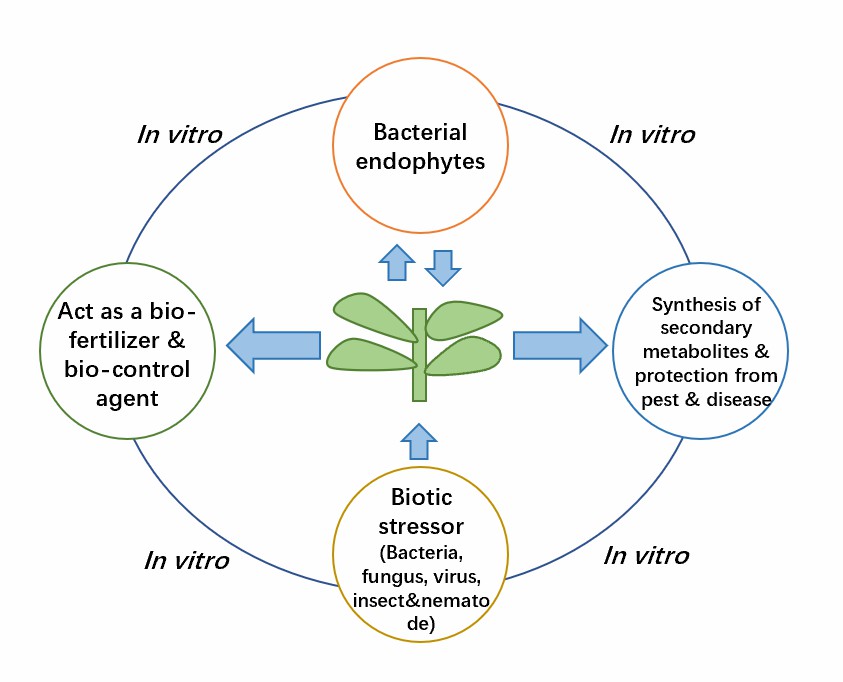All microorganisms that inhabit, at least for one period of their life cycle, the interior of a plant may be considered an endophyte. The endophytes, epiphytes (those that live on the surface of plants), and phytopathogens (those that cause diseases in plants), differ gradually from each other, and it is difficult to draw sharp limits to discriminate each category. Endophytic bacteria have been found internally in root tissue, where they persist in most plant species. They have the capability of colonizing internal host tissues, and this makes them a valuable tool for improving crop performance. By systemically colonizing roots, they have the potential to develop into biological control agents of plant parasitic nematodes.
Lifeasible provides services to customers worldwide in the field of control of plant nematodes by endophytic bacteria. Our platform is equipped with advanced facilities and professional experts to support related research. Here we provide various services according to customer needs.
 Fig.1 Endophytic bacteria in biotic stress alleviation.
Fig.1 Endophytic bacteria in biotic stress alleviation.
Lifeasible provides cost-effective, high-quality, and comprehensive services to our clients worldwide. We provide our clients with direct access to our experts and prompt response to their inquiries. If you are interested in our services or have any questions, please feel free to contact us or make an online inquiry.
Lifeasible has established a one-stop service platform for plants. In addition to obtaining customized solutions for plant genetic engineering, customers can also conduct follow-up analysis and research on plants through our analysis platform. The analytical services we provide include but are not limited to the following:
Get Latest Lifeasible News and Updates Directly to Your Inbox
Adaptive Evolutionary Mechanism of Plants
February 28, 2025
Unraveling Cotton Development: Insights from Multi-Omics Studies
February 27, 2025